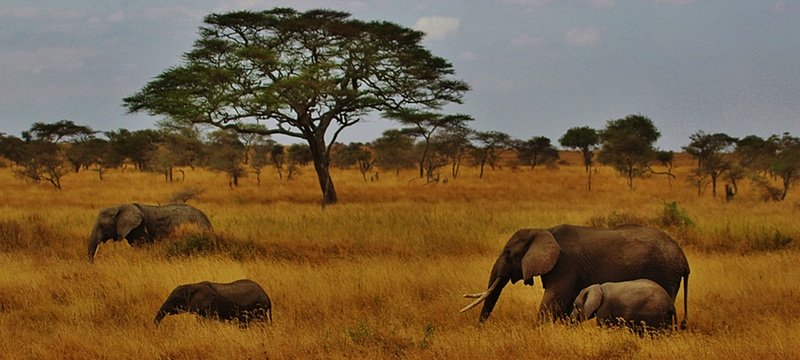Latest news reported that the world lost one of the oldest and largest bull elephants who lived in Kenya’s Tsavo Conservation area. Satao was known by his enormously long tusks, which were so big that they could touch the ground. Satao was estimated to be about 45 years old and was killed by an ivory poacher’s poisoned arrow, who hacked off the elephant’s face and taken his ivory to feed the seemingly insatiable demand for ivory in far off countries.
Over 20,000 African elephants were poached across the continent in 2013 according to a report published by the Convention on International Trade in Endangered Species of Wild Fauna and Flora (CITES). Although the sharp upward trend in illegal elephant killing observed since the mid-2000s, which had peaked in 2011, is leveling off, poaching levels remain alarmingly high and continue to far exceed the natural elephant population growth rates, resulting in a further decline in elephant populations across Africa.
Let’s meet some interesting facts about elephants, this amazing and majestic mammal.
1.
There are two species of elephants, the African elephant (Loxodonta africana) and the Asian elephant (Elephas maximus). Some evidence suggests African bush elephants (L. africana) and African forest elephants (L. cyclotis) as two separated species.
2.
Male African elephants are the largest living land mammal in the world, reaching a height of 4 m and weigh 7000 kg.
3.
Elephants are herbivores. Elephants use to eat grasses, leaves, bamboo, bark and roots. They also eat crops like banana and sugarcane. Adult elephants eat 140-180 kg of food per day.
4.
Elephants can spend up to 16 hours days collecting leaves, twigs, bamboo and roots.
5.
Elephants can swim, using their trunk to breathe like a snorkel in deep water.
6.
Tusks are an elephant’s incisor teeth. They are used for defense, digging for water and lifting things.
7.
An elephant’s trunk can grow to be about 2 m long and can weigh up to 140 kg. Elephants trunk has more than 40,000 muscles in it.
8.
Adults elephants need to drink around 20 liters of water a day.
9.
Elephants have large, thin ears. Their ears are made up of a complex network of blood vessels which help regulate their temperature. Blood is circulated through their ears to cool them down in hot climates.
10.
The elephant’s trunk is able to sense the size, shape and temperature of an object. An elephant uses its trunk to lift food and suck up water then pour it into its mouth.
11.
Female elephants are called cows. They start to have calves when they are about 12 years old and have a gestation period of 22 months. At birth, an elephant calf weighs about 104 Kg!
12.
Elephants form deep family bonds and live in tight matriarchal family groups of related females called herds.
13.
Males elephants leave the herds between the ages of 12-15 years old and may lead solitary lives or live temporarily with other males.
14.
Elephants have no natural predators. However, lions will sometimes prey on young or weak elephants in the wild. The main risk to elephants is from humans through poaching and changes to their habitat.
15.
Asian elephants have been very important to Asian culture for thousands of years – they have been domesticated and are used for religious festivals, transportation and to move heavy objects.
16.
An elephant’s skin is an inch thick.
17.
Elephants are extremely intelligent animal and have memories that span many years.
18.
Elephants can communicate over long distances by producing a sub-sonic rumble that can travel over the ground faster that sound through air.
19.
Elephants display signs of grief, joy, anger and play.
20.
Elephants can live up to 70 years old in the wild.
21.
Elephant is the only mammal that can’t jump.
22.
The average weight for an elephant heart is 12 to 21 Kg.
23.
Elephants have a highly developed brain and the largest of all the land mammals. The brain is 3 or 4 times larger than that of humans although, smaller as a proportion of body weight.
24.
Elephants have poor eyesight but an amazing sense of smell.
25.
Elephant feet are covered in a soft padding that help uphold their weight, prevent them from slipping, and dull any sound. Therefore elephants can walk almost silently!
